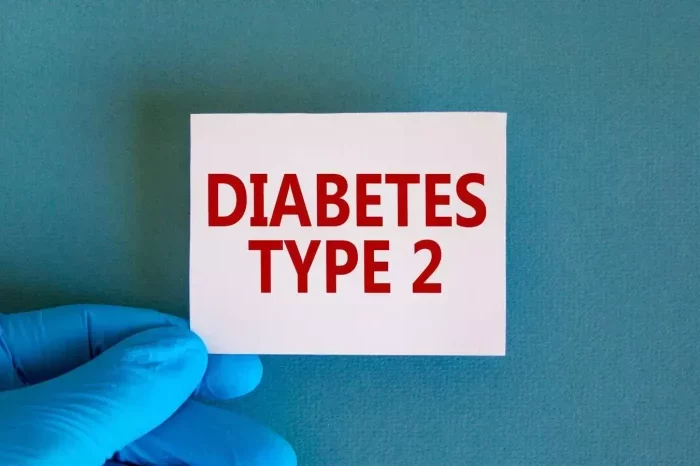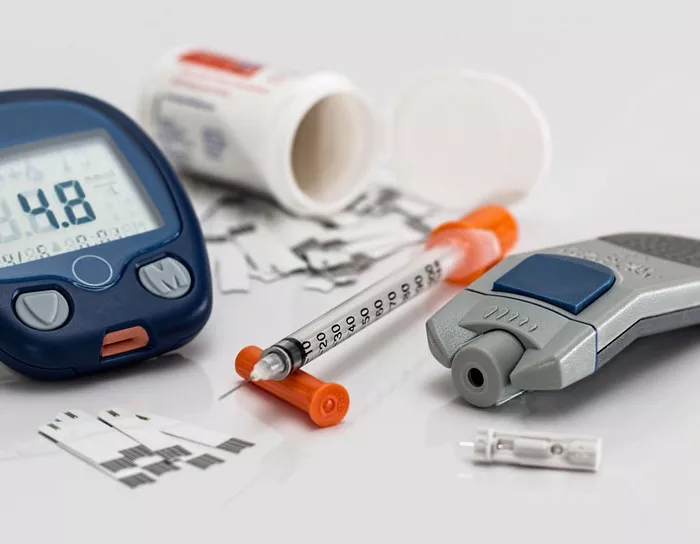Diabetes is a chronic condition characterized by elevated blood sugar levels resulting from defects in insulin production, insulin action, or both. Insulin, a hormone produced by the pancreas, regulates blood sugar levels by facilitating the uptake of glucose into cells for energy production. When the body cannot effectively use insulin or produce enough of it, blood sugar levels can become too high, leading to various health complications.
Types of Diabetes
There are three main types of diabetes:
Type 1 Diabetes: Type 1 diabetes, formerly known as juvenile diabetes or insulin-dependent diabetes, is an autoimmune condition in which the immune system mistakenly attacks and destroys insulin-producing beta cells in the pancreas. This results in little to no insulin production, requiring individuals with type 1 diabetes to rely on insulin injections or insulin pumps for lifelong management.
Type 2 Diabetes: Type 2 diabetes, the most common form of diabetes, occurs when the body becomes resistant to insulin or fails to produce enough insulin to maintain normal blood sugar levels. Risk factors for type 2 diabetes include obesity, physical inactivity, poor diet, genetics, and age. Management strategies for type 2 diabetes may include medication, lifestyle changes, and blood sugar monitoring.
Gestational Diabetes: Gestational diabetes develops during pregnancy and typically resolves after childbirth. It occurs when the body cannot produce enough insulin to meet the increased demands of pregnancy. Gestational diabetes increases the risk of complications during pregnancy and delivery, as well as the long-term risk of developing type 2 diabetes for both the mother and the child.
Severity and Complications
All types of diabetes, if not managed properly, can lead to serious complications affecting various organ systems in the body. These complications may include:
Cardiovascular Disease: Diabetes significantly increases the risk of heart disease, stroke, and other cardiovascular complications due to elevated blood sugar levels, high blood pressure, and abnormal lipid profiles.
Kidney Damage (Nephropathy): Diabetes can damage the kidneys over time, leading to kidney failure and the need for dialysis or kidney transplantation.
Vision Loss (Retinopathy): Elevated blood sugar levels can damage the blood vessels in the retina, leading to diabetic retinopathy and potentially vision loss or blindness.
Neuropathy: Diabetes can cause nerve damage (neuropathy), leading to numbness, tingling, pain, and impaired sensation in the extremities. Neuropathy can increase the risk of foot ulcers, infections, and lower limb amputations.
Misconceptions
One common misconception about diabetes is that type 1 diabetes is more severe or “worse” than type 2 diabetes. In reality, all types of diabetes can have serious consequences if not managed properly. Type 1 diabetes requires lifelong insulin therapy and careful monitoring, while type 2 diabetes often requires a combination of medication, lifestyle changes, and blood sugar monitoring. Both types of diabetes can lead to similar complications if left untreated or poorly managed.
Management Strategies
Management strategies for diabetes vary depending on the type and severity of the condition.
Type 1 Diabetes: Management of type 1 diabetes typically involves insulin therapy through injections or insulin pumps, blood sugar monitoring, carbohydrate counting, and regular exercise.
Type 2 Diabetes: Management of type 2 diabetes may include lifestyle changes such as healthy eating, regular physical activity, weight management, oral medications to lower blood sugar levels, and, in some cases, insulin therapy.
Gestational Diabetes: Management of gestational diabetes focuses on controlling blood sugar levels through diet, exercise, and, if necessary, insulin therapy to ensure a healthy pregnancy and reduce the risk of complications for both the mother and the baby.
Medical professionals emphasize the importance of early diagnosis and treatment to prevent or delay the onset of complications associated with diabetes. Regular medical check-ups, blood sugar monitoring, and adherence to treatment plans are essential for maintaining optimal health and reducing the risk of long-term complications.
Resources for Support
For further reading and support, individuals with diabetes can access resources such as:
American Diabetes Association (ADA)
Centers for Disease Control and Prevention (CDC)
National Institute of Diabetes and Digestive and Kidney Diseases (NIDDK)
Diabetes support groups and online communities
Educational materials and publications on diabetes management and lifestyle changes
Call to Action
If you or someone you know is living with diabetes, it is essential to consult with healthcare providers for personalized advice and management plans. With proper medical care, medication, lifestyle modifications, and support, individuals with diabetes can effectively manage their condition and lead healthy, fulfilling lives.
Conclusion
Diabetes is a complex and multifaceted condition that requires ongoing management and support. By understanding the different types of diabetes, potential complications, management strategies, and resources available, individuals with diabetes can take proactive steps to optimize their health and well-being. With a comprehensive approach to diabetes care that includes medical treatment, lifestyle changes, and support from healthcare providers and peers, individuals can successfully navigate the challenges of living with diabetes and achieve better health outcomes.
Related Topics:
What Fruit Can I Eat With Diabetes Type 2?



























